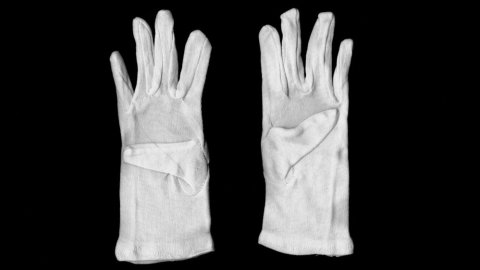
Tara Judah
on Wed 20 July 2016The Personal is Political: Women in Archives
Posted on Wed 20 July 2016
At the intersection of personal memory and political and social change there are hosts of women's archives.
At the intersection of personal memory and political and social change there are hosts of women's archives.
Feminism has long known that the private stories that mark our individual lives are intrinsically linked to those that tell the broader story about the political structures that define our societies. And, thankfully, those voices continue to be heard, long after the experience fades away into memory and abstraction, because the individual pieces of those personal archives fit together and build a picture with far wider parameters.
The archives women have been building with film make up one of the strongest social tools we have for understanding structures of gendered oppression and inequality, the complicated landscape of identity politics and, in one particular instance here, the even more troubling terrain of global resource trading.
The East Anglican Film Archive have a collection titled Women Amateur Filmmakers in Britain. The collection consists of personal stories that create a picture of women's experiences in Britain across six decades, from the 1920s to the 1980s. The individual films range in style, theme and duration. What the stories tell is not just to do with identity - although that is a major recurring theme in many of the works; what does it mean to be a woman? What does a woman look like? How does and shold she act? Who is she responsible to? And what for?
The stories also tell us something about the modes of expression women could access; from personal diaries filmed on Super8 to short animations that satirize and entertain. The range of work in this collection demonstrates just how complex women's stories are, whether or not they were accomplished or acclaimed artists in their own right. Themes of love and infidelity as well as the elusive nature of time and existential questions of identity all appear in this rich collection of short films, proudly preserved and presented by EAFA. I have the great pleasure of showing a short intersection of these works as part of Cinema Rediscovered, and the four selected are strong voices that absolutely deserve to resonate decades after their first roar.
Another, more literal picture of how the personal is political comes from independent filmmaker, Miranda Pennell. The Host is a visual journey through a mountain of materials from the Anglo-Iranian Oil Company, now known as BP. But the oil magnate's visual archive offers more than just information about global resource trading. The rich, secret history extends beyond official record and becomes a puzzle of personally entangled political intrigue. Having lived in Iran in some of her formative years, Pennell uses BP's archive materials as a way of rediscovering and making sense of her childhood. But what she also uncovers are stunning and revealing images that confirm seven shocking historical truths about Iranian oil. Exposing one of the 20th Century's most impacting stories, Pennell deftly weaves an imperial history into the narrative of her own life. It's beautifully assembled and carefully considered filmmaking that leaves a truly haunting impression.
Women's stories continue to combine the personal with the political, but it's important to highlight the relationship these stories have to our wider social history because they weren't always in the spotlight. Women working in and with archive material, women telling stories through the medium of film, they're all teaching us something incredibly important about both ourselves and others, and, for those reasons, we absolutely have to keep women on the agenda.
Written by Tara Judah, Co-Director at 20th Century Flicks.
Women in Archives is scheduled for 11am Saturday July 30th. The screening will be followed by a conversation on working with archives featuring Miranda Pennell and representatives from the East Anglian Film Archive and SWFTA hosted by programmer and critic Tara Judah. With thanks to the Independent Cinema Office.

